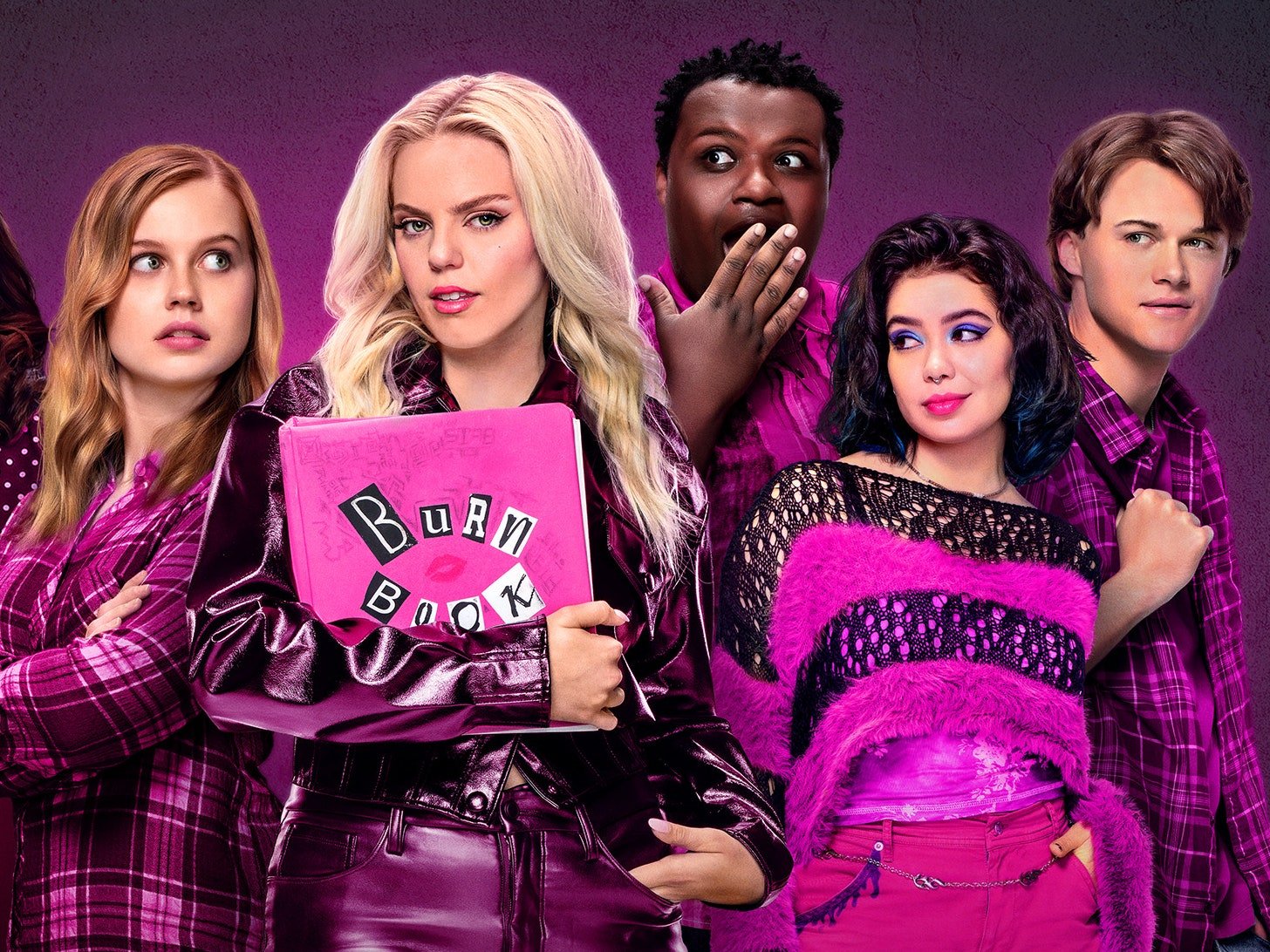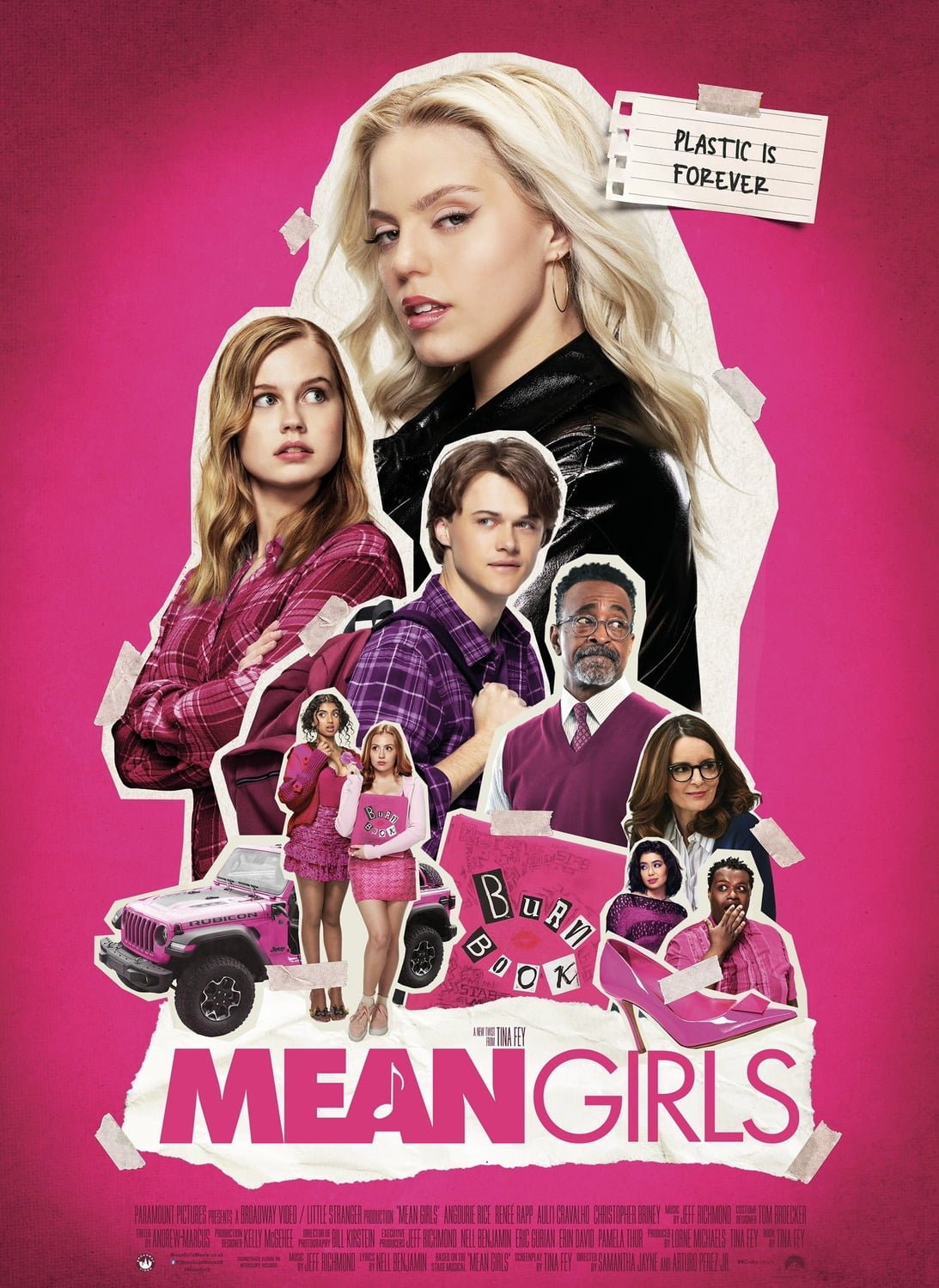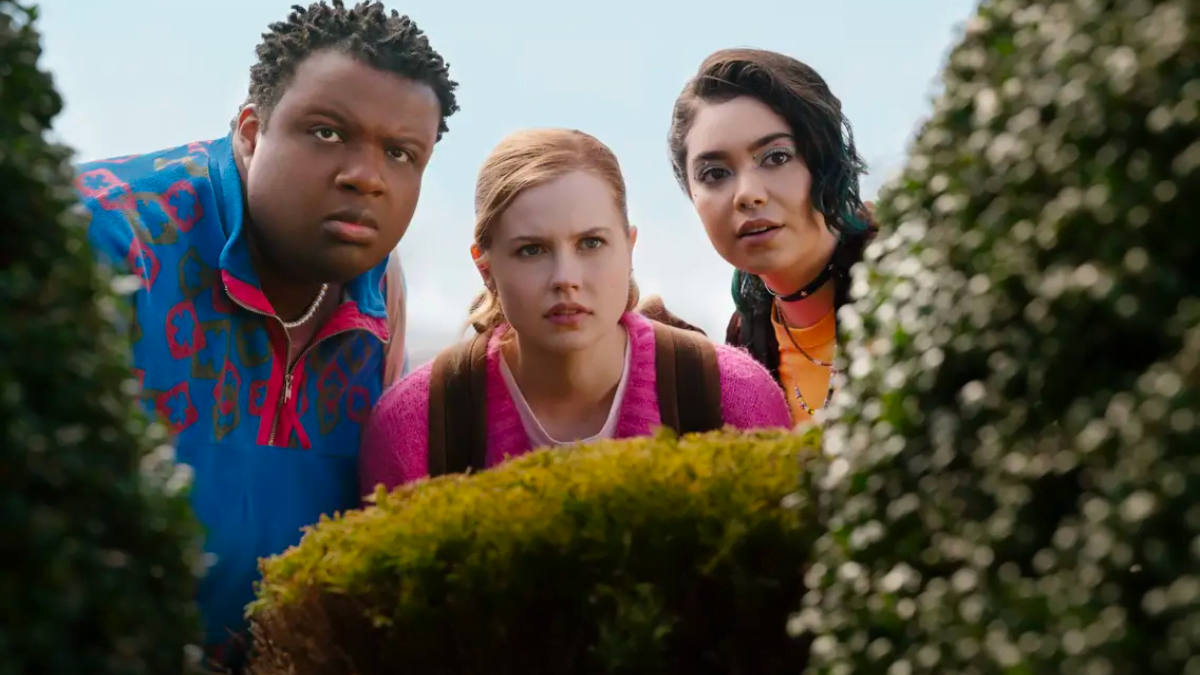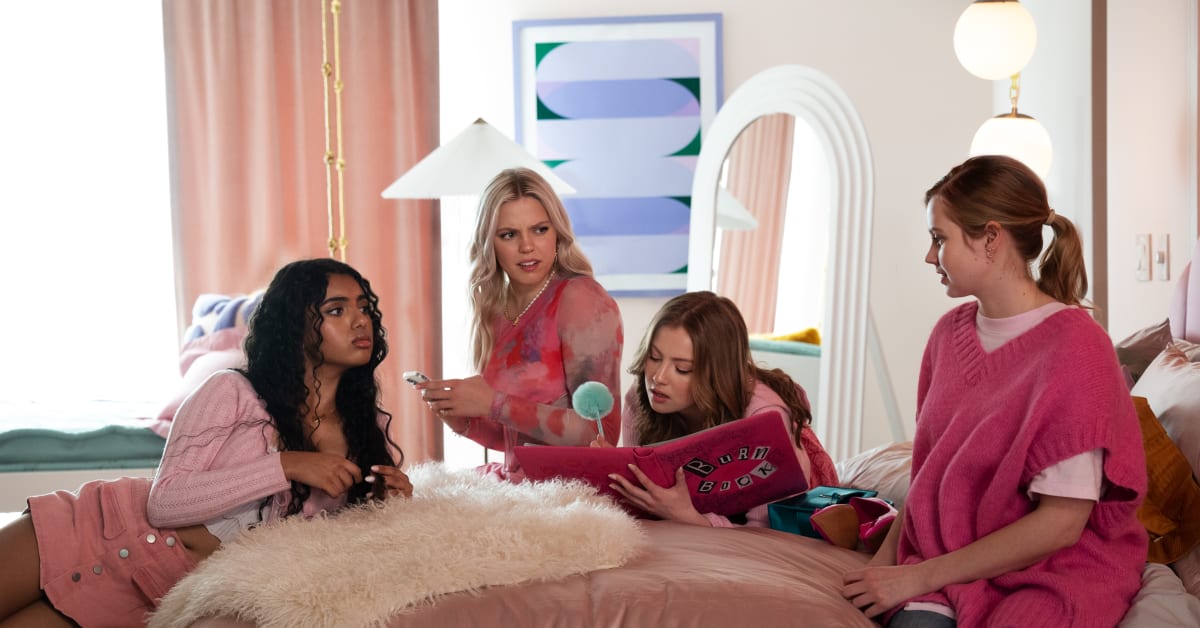As the new year begins, there are exciting films and web series with dramatic and musical elements. The film Mean Girls, released in 2004, has become a cult favourite among young adults. While the original film has clever lines and talented actors, it also includes humour that perpetuates racist stereotypes and problematic elements from the mid-2000s. However, the 2024 musical version of Mean Girls, directed by Samantha Jayne and Arturo Perez Jr. and starring Tina Fey, goes even further in promoting toxic behaviour, including warped representations of empowerment, unrealistic beauty standards and bullying. This review discusses how these harmful aspects are normalised in the film.
The plot of the Mean Girls musical
Cady Heron, a junior in high school who was homeschooled by her research scientist mother in Kenya, is navigating the various cliques at her public high school for the first time. This version of the story is more solid in its setting and avoids making offensive jokes about Cady’s upbringing.
The story begins with Regina inviting Cady to join her popular group, the Plastics. However, Cady is unaware of the troubled history between Regina and Janis.
Cady finds the first day of school challenging but befriends Damian and Janis, who introduce her to their group of artistic friends. Regina George, the popular girl leader, captivates Cady and the others. Gretchen, Regina’s best friend, struggles with body image. Karen is known for being unintelligent. The story begins with Regina inviting Cady to join her popular group, the Plastics. However, Cady is unaware of the troubled history between Regina and Janis.
As the story unfolds, more details about their toxic friendship from middle school are revealed. Cady also has a crush on Aaron, who is Regina’s ex-boyfriend, adding to the complications. Janis convinces Cady to team up with Regina for revenge and to win Aaron’s affection. However, things don’t go as planned and Cady begins to lose herself in the popularity of her new status. The new film reimagines story points and character moments from the first film using a musical and social media perspective. Cady and Regina’s popularity changes rapidly, similar to trending topics on Twitter. Their antics are captured on cell phones, leading to numerous reaction videos. Cady goes from being insignificant to having millions of views and likes in a short amount of time.
When Cady informs Janis and Damian about the Burn Book, they clarify that Janis and Regina were friends before Janis came out to the school as a lesbian. Cady starts purposefully failing arithmetic to gain Aaron’s favour and receive an invitation to his Halloween party. When Regina learns that Cady has a thing for Aaron, she becomes envious and flirts with him before kissing him in front of Cady. Acknowledging Janis’s accuracy about Regina, she consents to carry out her scheme to destroy Regina’s reputation.
The film Mean Girls, released in 2004, has become a cult favourite among young adults.
Cady replaces Regina’s face cream with lard and tricks her into eating Kälteen Bars, which cause weight gain. The three play on Gretchen’s fears by sending Cady a Candy Cane-Gram, leading Gretchen to believe that Cady is now Regina’s best friend. Cady learns all of Regina’s secrets from Gretchen, including the fact that she cheated on Aaron by seeing football player Shane Oman. Regina’s reputation suffers even more following her embarrassing, internet-wide video performance at the Winter Talent Show. Regina’s social standing is rapidly declining, and Cady emerges as the new “queen bee”. Cady declines Janis’s invitation to her art exhibition because she must accompany her mother to Madison. Afterwards, though, Cady gets her mother to let her stay at home and arranges a covert house party, during which she drunkenly tells Aaron that she has been purposefully failing arithmetic to get closer to him. Cady is chastised by Aaron for being just as cunning as Regina, and he leaves. Janis confronts Cady after he leaves, calling her out for being just as catty as Regina. Janis responds that Cady has turned completely plastic and has renounced their friendship when Cady accuses her of being obsessed with her.
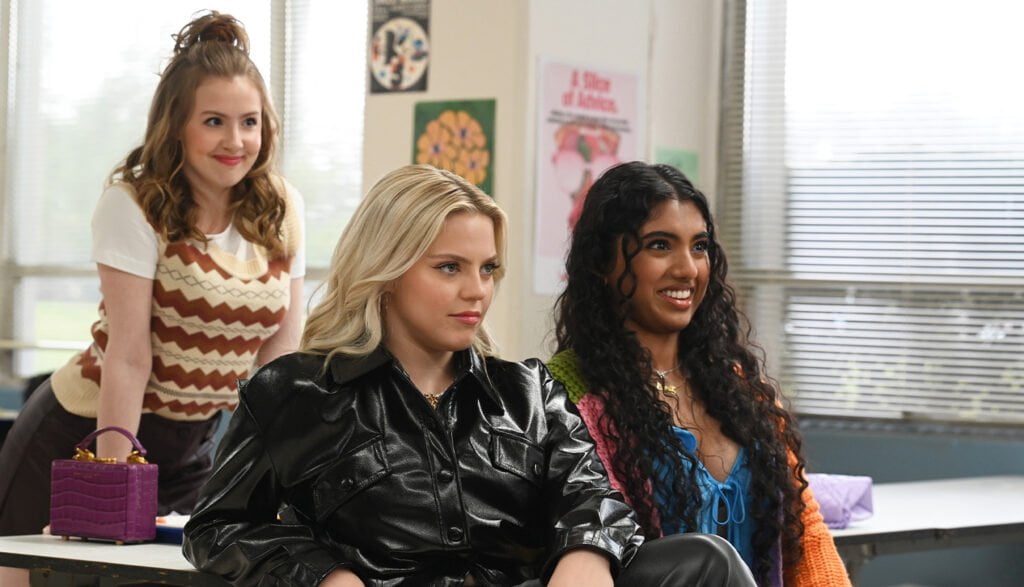
Regina finds out that Cady lied about the Kälteen Bars and that she was not invited to the party. She intentionally drops the Burn Book in the school hallway after adding herself to it. The junior girls erupt in a riot over the book’s rumours upon learning of the discovery. To locate the book’s source, Ms. Norbury, the math teacher, and Principal Duvall gather the junior girls in the gymnasium. In a cathartic intervention, Ms. Norbury urges the girls to express regret to one another for how they have treated other people. Speaking up, Janis divulges the entire scheme to exact revenge on Regina, who storms out in a fit of rage and gets struck by a bus when arguing with Cady.
Cady receives a three-week suspension after acknowledging the harm she caused and accepting full responsibility for the book. Cady accepts Ms Norbury’s offer to join the Mathletes at state championships to receive extra credit, and she proves her worth by contributing to the team’s victory. Cady makes up with Regina at the Spring Fling and wins the title of Spring Fling Queen. However, she breaks the plastic crown and distributes the pieces to the girls, telling them each of them is unique. After apologising to Damian and Janis, Cady makes apologies to the Plastics and is welcomed back as their friend.
The toxic portrayal of empowerment
The 2004 Mean Girls had a strong moral foundation, despite never, ever moralising. Its main idea—that all people deserve kindness regardless of their social status—was never elaborated upon; it was merely hinted at. The characters in the Mean Girls film behave indecently and act as if it empowers them. This is a strange departure from the original narrative, which argued that bitchiness and sincere self-expression are not the same thing. Even lines that are taken directly from the source feel heavy rather than light. Musicals, and this particular kind of musical in particular, are meant to be pure joy, but Mean Girls feels more like forced fun, a form of bullying covered up as entertainment.
The logically injured Janis becomes more involved in taking revenge on her archenemy Regina in the new Mean Girls. However, she lashes out at expectations of “how girls should behave” near the end of the film, declaring that ‘sometimes what’s meant to break you/makes you brave’ in the fiery song ‘I’d Rather Be Me’. That’s reasonable enough. However, the song goes against the central notion of the first Mean Girls. It celebrates making excuses, implying that it’s OK to treat other women badly if they’ve wronged you, instead of realising that mistreating others is the quickest way to degrade yourself. The mean girls have won if that’s what empowerment is all about.
The true essence of Mean Girls is lost amidst Gen Z lingo
In the 2024 Mean Girls Cady goes from being insignificant to having millions of views and likes online. While this is visually impressive, it is often used as a shortcut to show changes in Cady’s behaviour, instead of exploring them through dialogue. The songs in Mean Girls, the musical are meant to express the emotions of the characters, but they are not very catchy. However, Janis’ rock anthem about self-worth and Gretchen’s song about her insecurities are particularly moving.
The Janis and Damian song ‘Revenge Party’, in a rainbow-coloured hallway, featuring cotton candy clouds, perfectly captures the vibe of certain Gen-Z Instagram accounts. The visuals of the songs are impressive even if the songs themselves are not great. The musical may be enjoyable for fans of the stage show, but the songs feel like they are trying to cash in on nostalgia and do not contribute much to the plot.
The musical may be enjoyable for fans of the stage show, but the songs feel like they are trying to cash in on nostalgia and do not contribute much to the plot.
Led by Avantika’s Karen and presented through a tilted arrangement of stylised TikTok screens, the disco-infused ‘Sexy’ parodies the trend of sexy Halloween costumes while also acknowledging women’s desire to dress in “hot” outfits, particularly when they’re confined to a routine of being extremely modest. However, the majority of these young performers put in far too much effort for very little return. Rapp has a bright, flirtatious smile, but rather than singing her songs, she uses her strength to subdue them.
Using front-facing cameras, TikTok gestures, and a plot point that momentarily becomes viral Instagram content that is ridiculed by a group of North Shore high school students, the new film aims to appeal to a kind of media fluency. But the twenty years that have passed between the first Mean Girls film and this film have taught and reminded us how much the audience is invested in the fiery banter of youthful glamour and ferocity. Nevertheless, Mean Girls, the musical could have been a better watch if originality hadn’t lost its stance amidst the toxic sense of empowerment and the unnecessary pandering to Gen Z.
